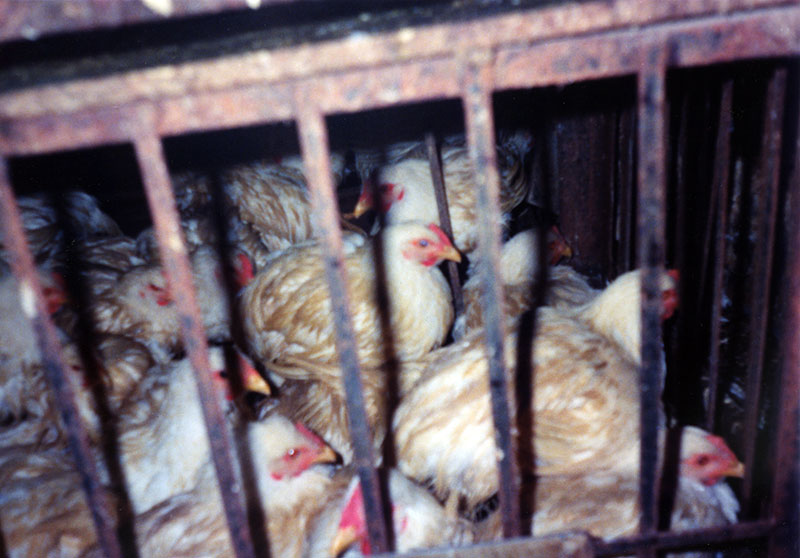UPC Contributes to a Powerful TV Show on Live Poultry Markets and Helps Residents Stop a Market from Opening on Long Island in New York City

In April, Long Island resident Ryland Gaines and Emmy Award-winning television producer Peter Thorne both found what they were looking for on UPC’s website section on Live Markets and Auctions. Gaines was trying to stop a live bird market from opening in the Town of Islip in Suffolk County Long Island, and Thorne was preparing an Investigative Report on the link between live bird markets and avian influenza for his Fact Finders program on WB Channel 11 News @ Ten in New York City.
UPC put Ryland Gaines in touch with Peter Thorne, who attended the Public Hearing in May on the proposed market/slaughterhouse, and subsequently put scenes from the hearing into his Investigative Report on Live Bird Markets, which aired on June 5. The report features an on-camera interview with UPC President Karen Davis and extensive footage from UPC’s video Inside a Live Poultry Market, which takes you inside the Ely Live Poultry Market in the Bronx.
Soon after the show aired, Mr. Gaines informed UPC that the Town of Islip Zoning Board of Appeals unanimously denied the permit to establish a live bird market in their community.
New York City currently claims 100 live animal markets – double the number of a decade ago – and more live poultry markets than any other city in the US, reflecting its large immigrant population “as foreign residents are the markets’ biggest customers,” according to a July 25 article in AM New York, which cites the New York Department of Agriculture’s ridiculous claim that it works “very closely with the markets and wholesalers to make sure they have healthy birds and they are operating a clean and sanitary environment.”
In reality, the agency does not keep track of where birds entering the markets come from or where they go. Dealers round up birds from auctions in various states. Many spent “cage-free” hens end up in these markets. Dead and unsalable birds are “handled as typical garbage.” Bird markets are a cash business, records aren’t kept, and there is no federal inspection because a market slaughters fewer than 20,000 birds a year. Live bird markets are breeding grounds for avian influenza. A veterinarian with New York’s Department of Agriculture states the obvious: “If you have seen these markets, you know that the birds are under stressful conditions. And birds under stress are much more prone to disease” (quoted in Michael Greger, MD, Bird Flu: A Virus of Our Own Hatching, forthcoming from Lantern Books, 2006).
To learn more about live bird markets and auctions, visit: www.upc-online.org/livemarkets/. UPC’s brochure, Live Poultry Markets, is available in English, Spanish and Chinese - 20 for $3. Inside a Live Poultry Market can be purchased in VHS and DVD format for $10. To order by credit card, go to www.upc-online.org.
